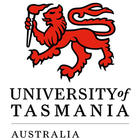Bachelor of Global Logistics and Maritime Management
Bachelor of Global Logistics and Maritime Management
The Australian Maritime College’s three-year Bachelor of Global Logistics and Maritime Management degree is designed to prepare students for management careers in the dynamic and internationally-focused maritime and logistics industries. 90 per cent of world trade is sent via the oceans, and it takes specialist skills to manage this vast…
Categories
COURSE DESCRIPTION
The Australian Maritime College’s three-year Bachelor of Global Logistics and Maritime Management degree is designed to prepare students for management careers in the dynamic and internationally-focused maritime and logistics industries.
90 per cent of world trade is sent via the oceans, and it takes specialist skills to manage this vast industry. Global logistics and maritime management professionals are in demand around the world in diverse industries such as shipping ports, logistics, exporting and importing, freight forwarding, manufacturing and government.
This specialist business degree will give you high-level expertise and knowledge. Our program will equip you with the ability to maintain, enhance and drive these industries into the future.
You’ll also engage directly with leaders from the maritime and logistics industries. As well as learning from highly qualified teaching staff, you’ll gain valuable experience with industry workshops and site visits.
Course objectives
The Bachelor of Global Logistics and Maritime Management provides graduates with high-level expertise and knowledge to understand the maritime business in the global arena, the world-wide spanning logistics services and strategies, as well as the structuring, operation and coordination of supply chains.
While exposing students to principles in financial management, international business, human resource management and strategic management, the course offers a clear focus on key components of the maritime and logistics industries, such as port management, logistics, supply chains, warehousing, procurement. It expands also to key principles in maritime economics, commercial, transport and maritime law.
Career outcomes
The maritime and the logistics industries underpin international business and world trade. They are a key element in sustainable development, and are tightly interconnected with human society: physically, socially and economically.
The Bachelor of Global Logistics and Maritime Management prepares students for management and senior administrative careers in private enterprises, industry organisations and governments. As a graduate of this degree program, you can be confident that the skills, knowledge and networks you’ve acquired through study will allow you to succeed in a diverse range of areas: commercial shipping, ports and terminals, transport, transport policy and administration, freight forwarding, exporting and importing, logistics and supply chains, and other elements of international business.
REQUIREMENTS
Admission to undergraduate courses at the University of Tasmania requires the completion of qualifications equivalent to a 12th year of education in Australia.
Most of our undergraduate programs have the following English language requirements.
IELTS (Academic) – 6.0 (no individual band less than 5.5)
TOEFL (iBT) 72 (no skill below: Reading 10; Listening 9; Speaking 16; Writing 19)
PTE Academic 50 with no score lower than 42
UTAS Access-English Level 6 – 60% (no individual score less than 55%)
Cambridge CAE (Certificate of Advanced English) – B Grade
Cambridge CPE (Certificate of Proficiency in English) – C Grade
Cambridge BEC (Business English Certificate) Higher – C Grade
EDUCATIONAL INSTITUTION
The University of Tasmania was officially founded on 1st January 1890 and is located at Sandy Bay, Tasmania. In addition to the main campus at Sandy Bay, it also operates out of the Newnham Campus and the Cradle Coast Campus. The most popular courses offered are the environmental studies that include wilderness management, marine sciences and indigenous studies in Tasmanian literature. Other unconventional courses include agriculture development, studies on the community and population and ocean study programs. The university also comprises of a Music Conservatorium, Art school and a School of Clinical studies.




